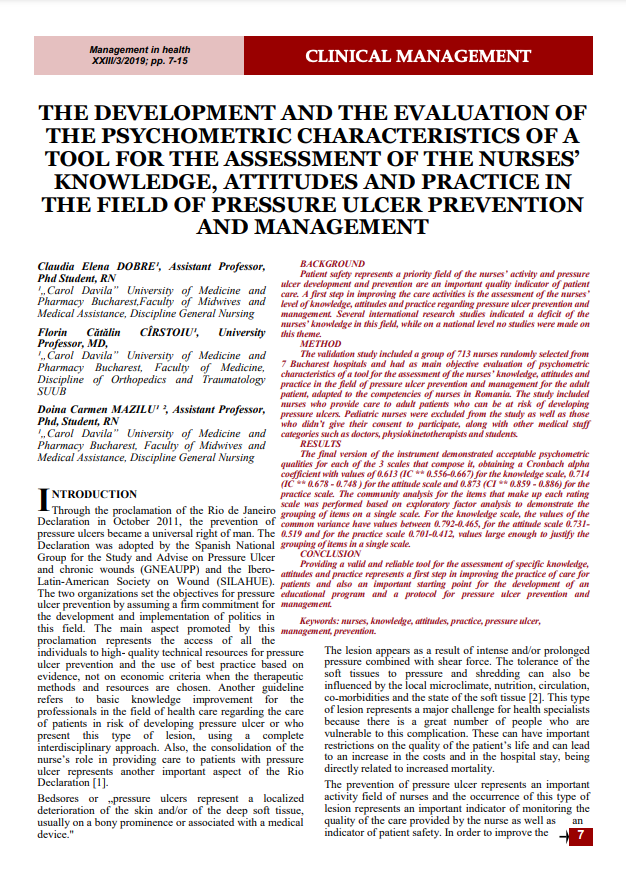Abstract
BACKGROUND
Patient safety represents a priority field of the nurses’ activity and pressure ulcer development and prevention are an important quality indicator of patient care. A first step in improving the care activities is the assessment of the nurses’ level of knowledge, attitudes and practice regarding pressure ulcer prevention and management. Several international research studies indicated a deficit of the nurses’ knowledge in this field, while on a national level no studies were made on this theme.
METHOD
The validation study included a group of 713 nurses randomly selected from 7 Bucharest hospitals and had as main objective evaluation of psychometric characteristics of a tool for the assessment of the nurses’ knowledge, attitudes and practice in the field of pressure ulcer prevention and management for the adult patient, adapted to the competencies of nurses in Romania. The study included nurses who provide care to adult patients who can be at risk of developing pressure ulcers. Pediatric nurses were excluded from the study as well as those who didn’t give their consent to participate, along with other medical staff categories such as doctors, physiokinetotherapists and students.
RESULTS
The final version of the instrument demonstrated acceptable psychometric qualities for each of the 3 scales that compose it, obtaining a Cronbach alpha coefficient with values of 0.613 (IC ** 0.556-0.667) for the knowledge scale, 0.714 (IC ** 0.678 - 0.748 ) for the attitude scale and 0.873 (CI ** 0.859 - 0.886) for the practice scale. The community analysis for the items that make up each rating scale was performed based on exploratory factor analysis to demonstrate the grouping of items on a single scale. For the knowledge scale, the values of the common variance have values between 0.792-0.465, for the attitude scale 0.731- 0.519 and for the practice scale 0.701-0.412, values large enough to justify the grouping of items in a single scale.
CONCLUSION
Providing a valid and reliable tool for the assessment of specific knowledge, attitudes and practice represents a first step in improving the practice of care for patients and also an important starting point for the development of an educational program and a protocol for pressure ulcer prevention and management.

